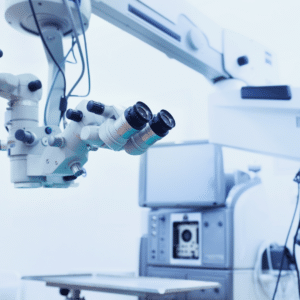Using a medical device import agent can offer several benefits, especially if you are navigating the complex process of importing medical devices into a new market or dealing with regulatory requirements that are unfamiliar to you. At the end of this blog, you’ll have a firm and developed idea of the regulatory requirements when importing medical devices and why our MDEL import agent can solve so many of your problems.
Here are some advantages to using a medical device import agent:
- Regulatory Expertise: Medical device import agents are often well-versed in the regulatory requirements and documentation needed for importing medical devices. They can help you navigate the complex regulatory landscape, ensuring your products meet all necessary compliance standards.
- Local Knowledge: Import agents know the target country’s local market conditions, business practices, and cultural nuances. This local knowledge can be invaluable in helping you tailor your approach to a specific market and make informed decisions.
- Navigating Customs: Importing medical devices involves dealing with customs procedures, duties, and taxes. Import agents are experienced in handling customs clearance and can expedite the process, reducing delays and potential complications.
- Supplier and Vendor Liaison: Import agents can establish and maintain relationships with suppliers and vendors in the source country. This can help streamline communication, negotiate favorable terms, and address any issues arising during the import process.
- Documentation Assistance: Importing medical devices requires extensive documentation, including regulatory filings, certificates, and quality control records. An import agent can help you compile and organize these documents to ensure a smooth import process.
- Risk Management: Import agents can help identify potential risks and challenges of importing medical devices. Their expertise can assist you in mitigating risks, ensuring product quality and safety, and addressing compliance concerns.
- Time and Cost Savings: Working with an import agent can save you time and resources by handling various logistics, administrative tasks, and compliance-related activities on your behalf. This allows you to focus on your core business operations.
- Networking and Connections: Import agents often have established networks and connections in the industry and market. This can open up opportunities for collaboration, partnerships, and distribution channels.
- Language Barrier: If you are importing medical devices into a country where the primary language differs from yours, an import agent can bridge the language gap and facilitate effective communication with local authorities, suppliers, and stakeholders.
- Compliance Assurance: Import agents are committed to ensuring that your medical devices comply with all relevant regulations, quality standards, and industry best practices. Their expertise can help you avoid costly compliance errors.
- Market Entry Strategy: Import agents can provide insights and advice on developing a successful market entry strategy, including pricing, distribution, and marketing considerations.
Choosing a reputable and experienced import agent with a strong track record in the medical device industry and the target market is essential. Conduct thorough research and due diligence before partnering with an import agent to ensure they can effectively meet your needs and support your business goals.
What are the regulatory requirements set by Health Canada?
If you’re looking to import medical devices into Canada, here’s a general overview of the process and key considerations:
- Determine Device Classification: Medical devices are classified into different risk classes (Class I, II, III, and IV) based on factors such as intended use, potential risks, and mechanisms of action. Determine the classification of your medical device using Health Canada’s Medical Device Classification System.
- Appoint a Canadian Representative (if required): Foreign manufacturers of medical devices may need to appoint a Canadian representative responsible for communication with Health Canada and other regulatory matters.
- Obtain a Medical Device Establishment License (MDEL): Companies that import, distribute, or sell medical devices in Canada must hold a Medical Device Establishment License (MDEL). This license demonstrates compliance with regulatory requirements.
- Submit Device License Application: Depending on the device class, you may need to apply for a Device License. This involves submitting an application to Health Canada and providing detailed information about the device, its intended use, and supporting documentation.
- Quality Management System (QMS): Manufacturers of Class II, III, and IV medical devices must have a compliant Quality Management System (QMS). Health Canada recognizes ISO 13485:2016 as the standard for medical device QMS.
- Prepare Technical Documentation: Compile technical documentation demonstrating your medical device’s safety, effectiveness, and quality. This documentation may include design and manufacturing information, labeling, instructions for use, risk assessments, and clinical data (if applicable).
- Register and List Devices: Depending on the classification, specific medical devices must be registered and listed with Health Canada’s Medical Devices Active Licence Listing (MDALL) database.
- Labeling and Packaging: Ensure your medical device’s packaging and labeling comply with Canadian regulations. Labels must include important information such as device identification, manufacturer details, lot or serial numbers, and instructions for use.
- Importer Records: Maintain accurate records of imported medical devices, including information about the manufacturer, product details, lot numbers, distribution, and any complaints or adverse events.
- Adverse Event Reporting: Establish procedures for reporting adverse events, complaints, and recalls related to your imported medical devices to Health Canada.
- Customs Procedures: Work with customs brokers to ensure smooth importation and compliance with customs requirements, including tariffs and duties.
- Importer Responsibilities: As an importer, you ensure that the medical devices you import meet Canadian regulatory requirements, including quality, safety, and labeling.
It’s important to note that the information provided is a general overview, and the specific requirements and steps may vary depending on factors such as device classification, intended use, and regulatory changes. To ensure accurate and up-to-date information, it’s recommended that you consult Health Canada’s official guidance documents, regulations, and resources related to importing medical devices into Canada. Additionally, seeking assistance from regulatory experts or consultants experienced in medical device importation can help you navigate the process successfully.








